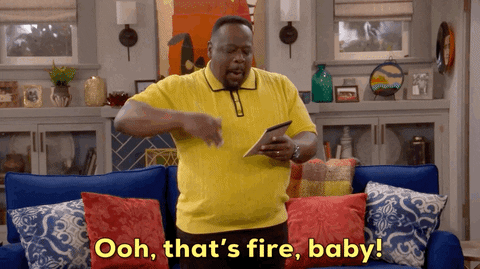One of the most common challenges for a writer is the search for inspiration. Inspiration is the spark that ignites the creative process, making the words flow out of your brain and onto the page, and it can come from various sources and in diverse forms. But it can be tricky to find sometimes.
Writing is an art, a journey of self-expression, and a remarkable way to connect with others through the power of words. As a writer, you may find yourself facing the age-old question: “How can I find inspiration for my writing?”
Inspiration is all around you, just waiting to be discovered, and here’s how you’ll learn to see it.
Explore the world around you.
Don’t just sit in front of your blank page. Immerse yourself in the world. Take a walk in nature, visit the city (or the country if you live in the city), or simply observe the everyday moments of life. Find a place to sit and just people watch, observe what’s going on around you.
Pay attention to the sights, sounds, and emotions that stir within you. Nature, people, and experiences provide a wealth of inspiration waiting to be transformed into words.
Read voraciously.
Reading is the fuel that feeds the fire of your imagination. Dive into books, magazines, poetry, and articles across various genres and styles. The words of others can be the spark that ignites your own creativity. Let their storytelling prowess inspire and guide your pen.
But don’t do it half-heartedly. When you read a book or watch a movie, don’t focus on other things at the same time. Splitting your focus is the death of creativity for a writer. Consume less things, if that’s what it takes, but give them your full attention.
Embrace your emotions.
Writing often begins with a feeling — a surge of happiness, a pang of sadness, or a rush of excitement. Embrace these emotions and use them as a starting point for your writing.
Channel your feelings into your words, and you’ll find that your authentic emotions resonate with your readers. Emotion is what makes your writing real.
Keep a journal.
A journal is a sanctuary for your thoughts and observations. It’s a place where you can pour out your thoughts, jot down ideas, and reflect on your experiences. Through journaling, you’ll discover a treasure trove of personal insights and potential writing material.
Engage in conversations.
Conversations with friends, family, or even strangers can be a wellspring (ew, voluntarily only if you’re an extrovert, right?) of inspiration. Listen actively to the stories people share, the challenges they face, and the wisdom they impart. The diverse perspectives of others can enrich your writing.
Set goals and challenges.
Challenge yourself with writing goals and prompts. Whether it’s a daily word count target or a themed writing challenge, setting objectives can push you to explore new ideas and genres. Overcoming challenges can be incredibly inspiring and that little dopamine hit of achieving a goal is never unwelcome.
Travel and experience new things.
Travel broadens your horizons and exposes you to different cultures, traditions, and perspectives. The sights, sounds, and flavours of new places can infuse your writing with a sense of wonder and adventure. Even if you can’t travel physically, explore the world through books and documentaries.
Humans evolved as a migratory species, and our brains are hardwired to want a literal change of scenery every once in a while. If you’re feeling stuck in a rut, just take a little trip or change up your routine and do something differently.
Find inspiration in history.
I’m a history nerd and the annals of history are filled with captivating stories, remarkable figures, and profound events. Sometimes the stories you dig up in history are better than anything you could ever come up with.
Dive into history books or documentaries to unearth fascinating tales to spark your imagination. Reimagining history through your writing is a captivating journey.
Connect with writing communities.
Joining writing groups and communities, whether online or in person, can be a powerful source of inspiration. Sharing your work, receiving feedback, and engaging with fellow writers provides oodles of motivation and fresh perspectives.
HOWEVER, take this with a grain of salt. There are a lot of writing groups and communities out there that like complaining about not writing more than they actually like writing. If you find a good one, hold on to it. If you find a bad one (and you will find many), don’t be afraid to just exit stage left as soon as it starts feeling off.
Mine your own dreams.
Dreams can be an untapped source of inspiration. Keep a dream journal, jotting down any vivid or intriguing dreams you have. Even if all you can remember are individual details, write it down.
Then you can take the things in there as jumping off points for some free writing. Let your mind wander freely and explore the possibilities that exist within your own nightly imagination.
Find visual stimuli.
Visual arts, such as paintings, photographs, and films, can evoke powerful emotions and ideas. Visit art galleries, watch documentaries, or browse through photography books. The visual elements can stimulate your imagination and inspire your writing.
Finding inspiration is exhilarating and being inspired never gets old. Remember that your muse can strike at any moment, and most often does so in the most unexpected situations, so keep your heart and mind open to the world around you.
Don’t just waste away in front of your keyboard, live life and collect experiences. You’ll have more inspiration to draw from, the more you do this.
You are capable of creating words that inspire, resonate, and touch the hearts of others. I know you are.
Happy writing!
Want to get more out of reading books?

Grab this FREE guide on how to start a reading journal, complete with review templates, reading trackers and bingo sheets.
Understand yourself better as a reader, engage more with the books you read & make space for creative self-expression. Get it now!





